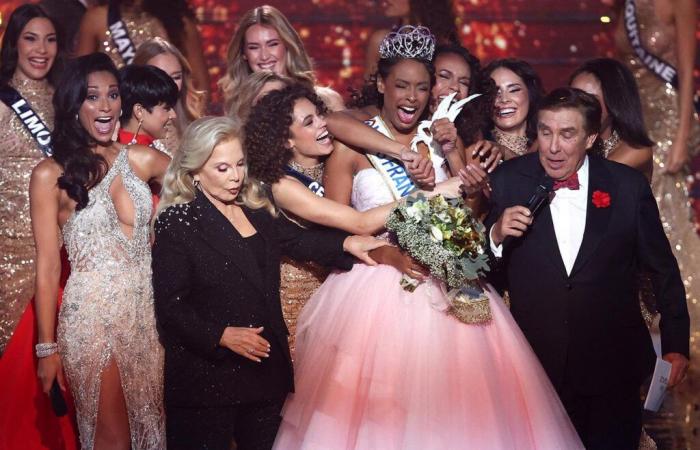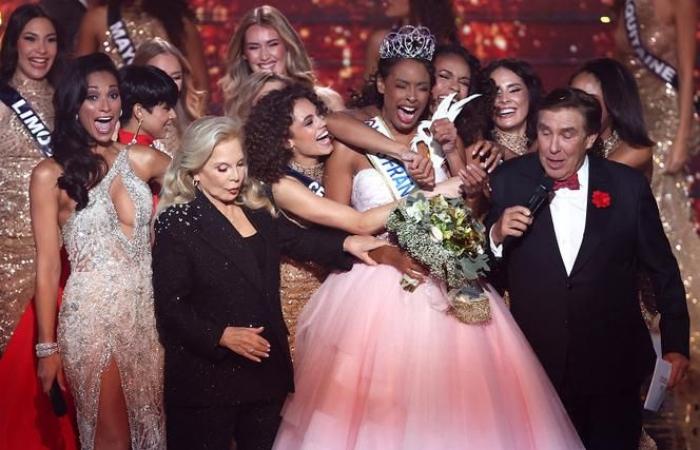Miss repeated
Does this scene look familiar to you? It's normal. Every year, almost on the same date, a young woman, tiara on her head, scarf around her chest, collapses in tears in the arms of other equally sparkling young women, but without a tiara. At their side, Jean Pierre-Foucault systematically overwhelmed by events. This year, the scene took place on December 14 at the Futuroscope in Poitiers and the main role was played by Angélique Angarni-Filopon. Miss France 2025 is her.
Read also | Article reserved for our subscribers Zelensky, Macron and Trump on a stoop, this may be a detail for you…
Read later
Made Vaison
The oldest winner in the history of the competition, long reserved for women under 24, Angélique Angarni-Filopon, 34, was presented with the traditional Miss France sash. 1.60 meters long, 9.5 cm wide and tied with a pin, it has been made for many years by the French house Varinard, based in Vaison-la-Romaine. Know this: originally specialized in the manufacture of flags, the company also produces mayor's scarves.
Lace War
Angélique Angarni-Filopon was dressed in an imposing pink tulle petticoat justifying a brief historical point. The material takes its name from the town of the same name, located in Limousin, where needle lace, called “point de Tulle”, was made. It was in England, in 1777, that industrial tulle was developed with the aim of imitating, on a large scale, tulle lace. The British counterpart became so quickly qualitative that Napoleon had its importation banned in 1802 so as not to discourage French artisans, afflicted by such competition.
All that glitters
The abundance of sequins on several outfits present here, in particular to the left of the image on the dress of Cindy Fabre, director of the national Miss France competition, and on the jacket Sylvie Vartan, president of the jury this year, allows us to remember that wearing this ornament is one of the most enduring trends in history. Judge for yourself: in 1327 BC, Pharaoh Tutankhamun was mummified then covered with small pieces similar to sequins, supposed to ensure his post-mortem financial stability.
Good foot good eyelet
The eternal Ringmaster of the competition, Jean-Pierre Foucault, was dressed in a classic tuxedo, accompanied by a bow tie in burgundy tones, the worst effect, and a red carnation in the buttonhole which allows us at least to make a cinema interlude. Harrison Ford, in Indiana Jones and the Temple of Doom, he also wore a carnation in his buttonhole, just like Marlon Brando in The Godfather or Sean Connery in Goldfinger. Jean-Pierre Foucault therefore follows in the footsteps of the greatest. Will it leave the same stylistic trace? Who knows.







